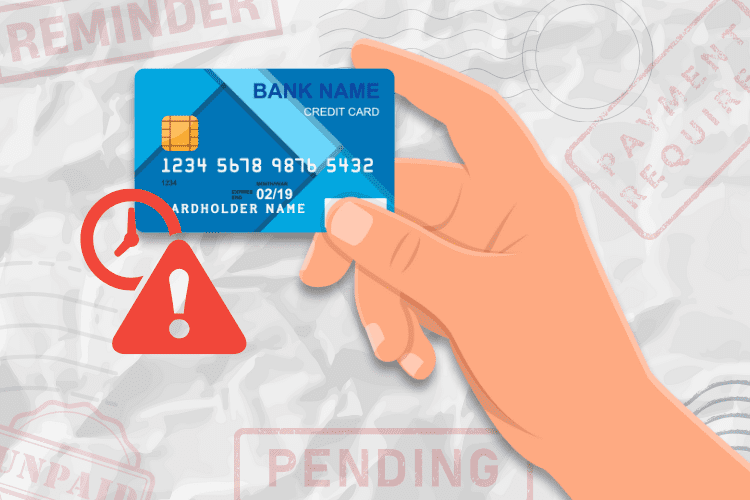Six Ways to Budget in The New Year

The new year is here, and if you haven’t put a plan in place for staying on top of your finances, we’ve got ways to help. Your financial future isn’t going to come together by osmosis; you have to devise a plan to win. That means incorporating behaviors that will improve your financial behavior.
Budgeting is a step in the right direction, and if that’s at the top of your list for improving your finances, I’ve got six tips that are sure to help.
Why Do A Budget?
Having a budget brings with it many benefits. Among them is having peace of mind and tracking your spending to know how to adjust it. Budgeting improves your spending habits and helps you to save money. If you plan to budget in the new year, here are six things you may want to apply.
1. Review Your Financial Goals
Take the time to review your financial goals for the upcoming year. Whether to purchase a pricey item like a car or a home or to start or top off that emergency fund, know what you’re working towards. Having goals helps keep you focused on the big picture and gives you a reason to want to budget.
2. Start Tracking Your Expenses
How you spend your money will play a big part in managing your finances, and tracking your expenses directs how you spend your money moving forward. Your expenses will be one of three types: fixed, variable, or periodic. While you may not have much control over your fixed expenses, you can definitely review your variable and periodic expenses to improve in those areas. Your ultimate goal is to limit unnecessary spending as much as possible to allow more money to be put toward your savings.
3. Review Your Subscriptions
One of the types of expenses you’ll want to pay close attention to is subscription services. These could be streaming channels, cellular services, music or gaming services, etc. If you’re like many people I know, you likely have multiple streaming services, or you’re paying too much for services you could probably do without.
Take the time to review your subscriptions to determine if you’re overpaying or paying for services that you don’t use. One of the things my husband does regularly is that he calls the loyalty department at some of these companies to find out what types of promotions they have going on. And you know what? If he cannot get the bill lowered 90% of the time, he can get some additional services that we could use—even if it’s only for a limited time. Don’t be bashful about picking up the phone to see how you can cut back your monthly payment on some of these services. If you’re paying for services you know longer use, you need to cancel them immediately.
4. Focus on Paying Off Debt
Whatever your goals are for the new year, paying off existing debt will only help you reach them sooner. Review your current debt situation and know how much it will take each month to pay toward your credit cards. Focus on paying off the smallest balances first. As you pay off debt, continue paying the same amount each month toward your debt by applying more than the minimum due toward the next smallest balance until that debt is fully paid. Continue to pay this way until all of your debt is paid off.
5. Stay On Top of Your Savings Accounts
Continue to build on your savings. It’s possible that you may need multiple savings accounts. For instance, you may need an emergency fund, an account that houses at least six months of expenses, a vacation account, etc. Review your savings accounts regularly to ensure they are building as you need them to. You’ll want the emergency fund to have at least $1,000 in it to use for unexpected situations that are sure to arise. And having an account that has at least six months of your expenses is smart to maintain in the event of sudden changes to your job, like layoffs, furloughs, etc. In the unlikely event another pandemic or something similar happens, you’ve got protection for a good period until you’re back on your feet.
6. Explore Budgeting Tools
There are many financial tools out there that you could really benefit from as you’re kicking off your budget plan for the new year. Never feel like you have to manage your money alone; take the time to explore your options. One of the tools I’d like to put at the forefront is Rocket Money. Rocket Money is a great tool for managing your finances and gives you the sense of empowerment you need to feel good about managing your money. Manage everything from your bank account to your credit score.
With Rocket Money, you can:
Easily manage subscriptions: Get the help you need to determine the subscriptions you need versus what you don’t need. Rocket Money will even cancel the ones you don’t need.
Get insights into your spending: Rather than being perplexed about exactly where your money is going, relax. The app will give you the insights you need to know how you spend your money, so if you’re not good at tracking your spending, Rocket Money will.
Negotiate your bills: I know, right? Who couldn’t use this feature? If you need help negotiating your bills, allow Rocket Money to help.
Know your net worth: Ask your average friend their net worth, and they probably couldn’t tell you. Turn the tables, and you probably couldn’t tell them either. Be the leader in your circle by knowing what you’re worth. You’ve taken empowerment to a new level when you can do that.
Save without thinking: You shouldn’t have to think about saving money. It should come automatically. And with Rocket Money, it will because you’ll find yourself paying more attention to how you spend. That automatically causes you to be wiser about what you spend your money on. Ultimately, that spells savings, savings, and more savings.
Improve your credit: With all the money management you get with Rocket Money, you’ll notice an overall improvement in your credit score.
Improve your budgeting: Do everything you need to do to win in the new year with Rocket Money. Set goals, track your spending, stay on top of your debt, and save more.
The Bottom Line
It’s great that you want to focus more on budgeting in the new year. Just remember that even when you have a plan in place, life happens. That means unexpected challenges will arise and could easily put a damper on your plans or uproot your plans and cause you to quit midstream. Don’t. Stay the course, anyway.
Check-in throughout the year to see how your plan is going and if you need to make changes, adjust as needed, but never give up on your goals. Continue to stay focused, and you’ll eventually reach them—through the challenges and all.
Read More:










